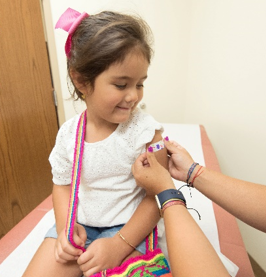
©unsplash.com
Data collection and follow-up are essential for neonatal care. At Emma Children’s Hospital, Amsterdam UMC, the “Follow Me” programme was implemented and evaluated to gain insights into long-term health outcomes, and to improve follow-up care and practice in the end. Results show solid data collection but a lack of indicators to monitor the programme’s effectiveness and performance, and highlight a need for a more holistic approach to managing care services.
To date, little is known about the long-term outcomes following neonatal and paediatric care. In light of the higher survival rates of preterm infants, a shift of focus towards understanding long-term outcomes is in progress.
In light of this development, the follow-up programme “Follow Me” was developed and launched at Emma Children’s Hospital, Amsterdam UMC in the Netherlands, focusing on three departments: the neonatal intensive care units, the paediatric intensive care unit, and the paediatric surgery department.
The study, conducted between 2019 and 2020, used the so-called “FRAM methodology” approach (Functional Resonance Analysis Method), including document analysis, semi-structured interviews, observations, and feedback sessions, to evaluate the respective follow-up care programmes. The predefined procedures (work-as-imagined) within Follow Me were compared with how the programme was implemented in practice (work-as-done). One work-as-imagined model and four work-as-done models were analysed.
The results show extensive data collection on medical, developmental and psychosocial indicators in all work-as-done models. However, process indicators for the programme’s effectiveness and performance were missing. Researchers believe, however, that follow-up programmes can benefit from adding process indicators to quickly respond to discrepancies in follow-up care. In theory, data collection remains separated per medical specialisation, diagnosis or treatment group. However, the findings show that in practice, patients do not stay in single specialisations. A more holistic approach is therefore required to better manage care services. At last, whilst patient involvement was promoted in the development and evaluation of the programme, asking for individual patients needs and adjusting the programme to match those needs still needs more attention.
Paper available at: BMC Health Services Research
Full list of authors: Véronique Bos, Daniëlle Roorda, Eleonore de Sonnaville, Menne van Boven, Jaap Oosterlaan, Johannes van Goudoever, Niek Klazinga and Dionne Kringos

